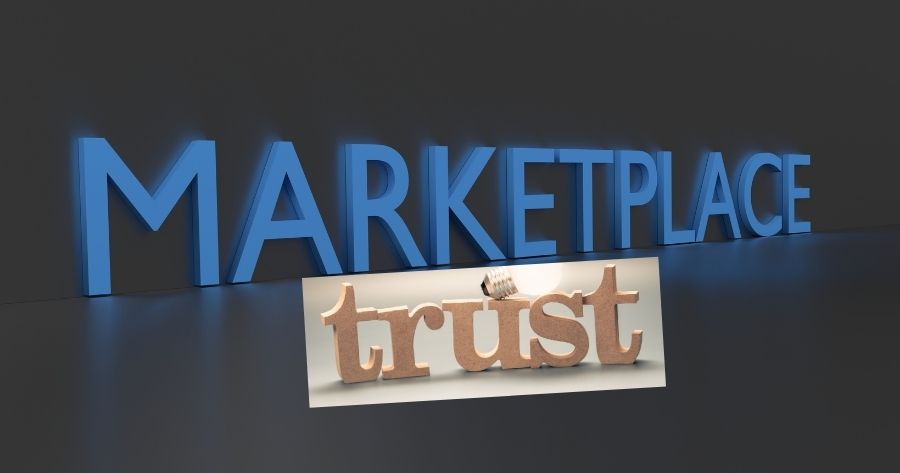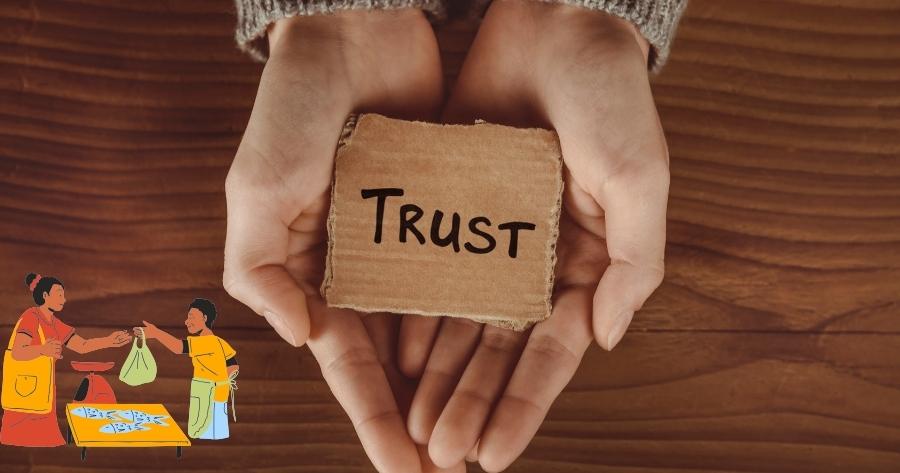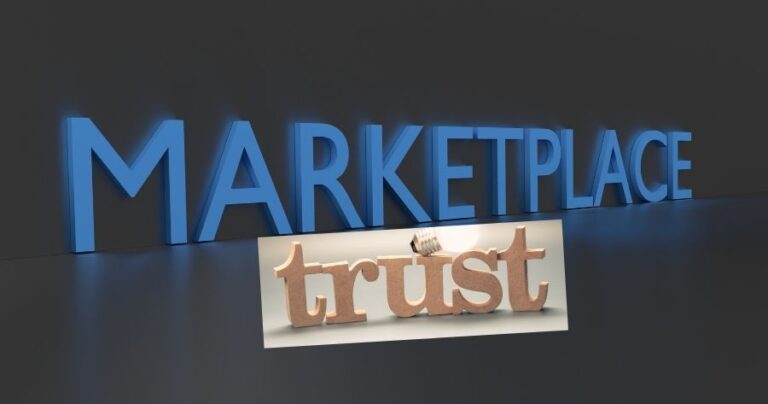
How To Create A Trustworthy Marketplace Profile
The heartbeat of any marketplace, whether it’s Amazon, Etsy, Facebook Marketplace, or a local buy-and-sell app; is trust. Buyers won’t part with their money unless they feel confident in the platform, the seller, and the product they’re purchasing. Unlike traditional brick-and-mortar shops, digital marketplaces don’t allow customers to physically examine goods before purchase. This absence of tangible interaction makes trust the currency of online transactions.
But here’s the challenge: scams, fake listings, counterfeit goods, and poor customer service have eroded confidence in many platforms. For sellers and operators, rebuilding and maintaining buyer trust isn’t optional, it’s survival.
This guide will explore, in deep detail, how to build and nurture buyer trust on marketplace platforms. We’ll break it down into strategies for sellers and strategies for platform owners, backed by research, case studies, and actionable steps.

The Importance of Buyer Trust in Marketplace Platforms
Trust isn’t just a feel-good word; it has measurable impact:
- Conversions rise when buyers feel confident in the platform and the seller.
- Customer retention improves, turning one-time purchases into repeat business.
- Platforms grow organically, because satisfied buyers spread the word.
Conversely, a single negative experience can ripple through communities, reviews, and forums, damaging a seller’s or platform’s reputation for years. PwC found that nearly 50% of customers stop buying from a company after just one bad experience. That statistic alone highlights why trust is not optional, it’s the backbone of online selling.
How Sellers Build Buyer Trust
Transparent and Honest Product Listings
The first impression buyers form comes from the listing itself. A trustworthy listing includes:
- High-quality photos from multiple angles.
- Honest descriptions, with clear details about condition, material, or size.
- Disclosure of defects (buyers value honesty more than perfection).
- Product demonstration videos where possible.
Trust signals start with clarity. Listings that feel rushed, incomplete, or exaggerated create doubt and hesitation.
Fair and Clear Pricing
Nothing erodes trust faster than hidden costs. Sellers who want to inspire confidence should:
- Display transparent pricing with no surprise fees.
- Keep shipping costs aligned with reality.
- Avoid underpricing so drastically that buyers question authenticity.
A product that’s too cheap feels suspicious; a product that’s overpriced feels exploitative. Fair pricing builds credibility.
Fast, Professional Communication
Buyers want sellers who are accessible and reliable. This means:
- Responding to inquiries within 12–24 hours.
- Using polite, professional language.
- Giving clear answers to shipping times, stock availability, or product features.
A quick and friendly response can mean the difference between a lost opportunity and a loyal customer.
Reliable Shipping and Packaging
Delivery is the final test of a promise. Sellers earn trust when they:
- Provide tracking numbers promptly.
- Use professional or eco-friendly packaging.
- Ensure timely delivery that matches the estimated timeframe.
First impressions happen at checkout; lasting impressions happen when the package arrives.
Leveraging Reviews and Social Proof
Buyers are far more likely to trust strangers when other strangers vouch for them. Social proof includes:
- Verified buyer reviews.
- Testimonials displayed in profiles.
- “Top Seller” badges or similar recognition.
Encouraging satisfied customers to leave feedback builds a reputation that future buyers can lean on.
After-Sales Support
Trust doesn’t end at delivery. Sellers who follow up with a thank-you message, resolve issues quickly, and offer simple return policies stand out in crowded marketplaces.
How Marketplaces Build Buyer Trust
Trust isn’t only the seller’s responsibility. Platforms must create safe environments where trust can flourish.
Strong Seller Verification
Buyers need assurance they aren’t dealing with anonymous ghosts. Platforms should:
- Require ID verification, business documents, or bank linking.
- Use AI-powered fraud detection to flag suspicious accounts.
Verification builds credibility for sellers and protects buyers from scams.
Secure and Transparent Payment Systems
Payment security is non-negotiable. Escrow systems, where funds are released only after the buyer confirms delivery, dramatically improve trust. Platforms that rely on secure gateways like PayPal, Stripe, or in-app payment solutions keep both parties safe.
Reputation and Rating Systems
Buyers often choose sellers based on reputation. Effective systems include:
- Visible ratings and reviews.
- Seller badges for consistent performance.
- Algorithms that reward reliable sellers with more visibility.
But these systems only work if reviews are genuine. Platforms must invest in removing fake reviews to protect credibility.
Buyer Protection and Dispute Resolution
Disputes are inevitable, but resolution defines reputation. Platforms that provide:
- Clear return and refund policies.
- Accessible customer support.
- Impartial mediation between buyers and sellers.
will consistently outperform those that leave buyers feeling unprotected.
Case Studies: Trust in Action
Amazon’s A-to-Z Guarantee ensures buyers are refunded if an item isn’t delivered or isn’t as described. This buyer-first policy has made Amazon the gold standard in online trust.
Etsy, by contrast, builds trust through authenticity and community. Sellers are required to be transparent about whether their items are handmade, vintage, or crafted with partners. This honesty resonates with buyers who value authenticity.
Airbnb, though not a product marketplace, provides valuable lessons. Its profile verification, user reviews, and secure payment system allow strangers to trust each other enough to share homes.
The Psychology of Buyer Trust
Building trust isn’t just about logistics, it’s about psychology. Sellers and platforms can leverage:
- Reciprocity: Offering small extras (discount codes, freebies) encourages loyalty.
- Authority: Verified badges and certifications create subconscious respect.
- Consistency: Reliable communication and predictable delivery form habits of trust.
- Social Proof: Testimonials reassure buyers through validation from others.
- Transparency: Honesty reduces hesitation and creates confidence.
These triggers align with deep human instincts, making trust-building both an art and a science.
Mistakes That Destroy Buyer Trust
Trust can take years to build but seconds to lose. Common mistakes include:
- Overpromising and underdelivering.
- Fake or manipulated reviews.
- Hidden fees that appear only at checkout.
- Ignoring complaints or offering no resolution.
- Poor packaging that feels careless.
Each of these mistakes signals disrespect, and disrespect kills loyalty.
Long-Term Trust Maintenance
Trust is not a one-time achievement; it’s a continuous process. Sellers and platforms should:
- Update listings regularly to avoid outdated details.
- Monitor reviews and respond to both praise and complaints.
- Evolve with consumer expectations, like offering eco-friendly options or prioritizing data privacy.
- Train customer service staff to prioritize fairness and empathy.
Trust thrives in environments where reliability and transparency are consistent over time.
The Future of Trust in Marketplaces
Emerging technologies are shaping the next chapter of buyer trust.
- Blockchain will allow transparent, tamper-proof records of transactions.
- AI-powered dispute resolution will handle conflicts faster and more fairly.
- Decentralized marketplaces will use smart contracts to enforce agreements automatically.
- Stricter data privacy laws will push platforms to protect buyers more effectively.
Even with these innovations, the human element remains central. Technology can enforce accountability, but sincerity and integrity will always drive loyalty.
Conclusion
Trust isn’t built overnight; it’s earned with every product description, every response to a buyer’s question, every package delivered, and every dispute resolved fairly. Marketplaces that prioritize buyer trust win not just sales, but long-term loyalty. Sellers who put integrity and transparency at the core of their business create thriving, sustainable operations.
Whether you’re running a global marketplace or selling part-time on Facebook Marketplace, remember; in the digital economy, trust is the most valuable currency you can trade in.





